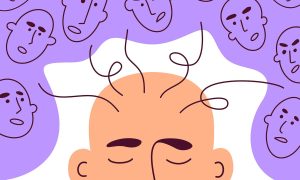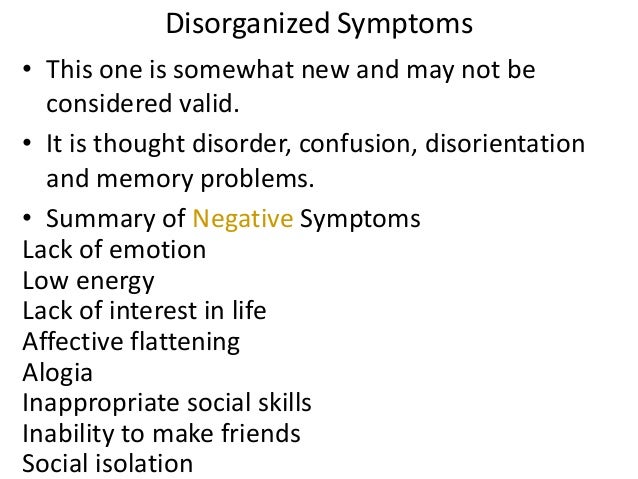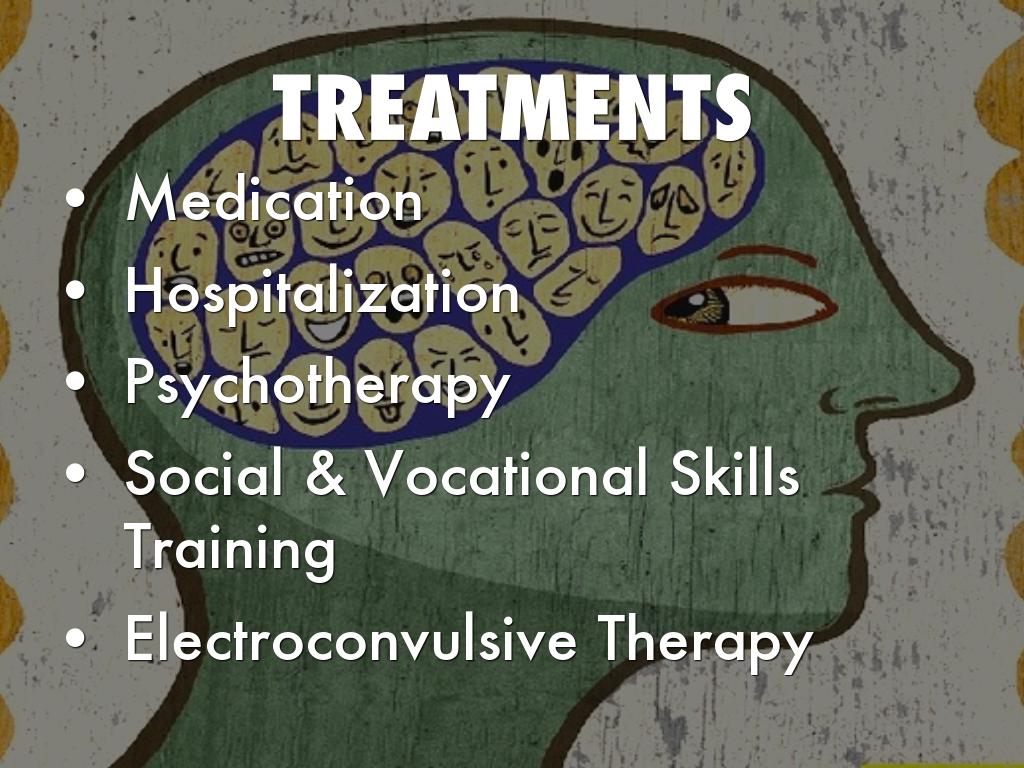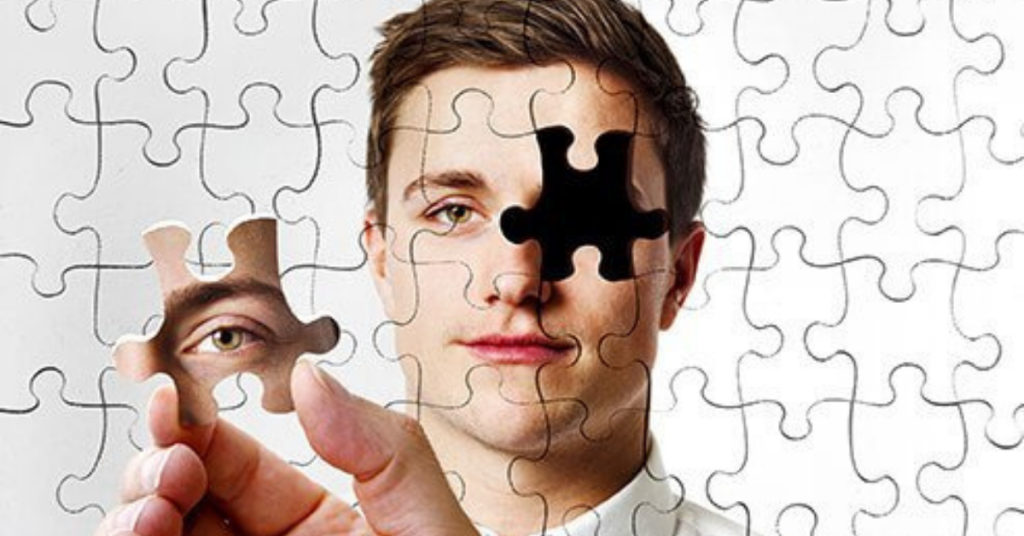Schizophrenia is a mental disorder that affects how a person thinks, feels, and behaves. There are several different types of schizophrenia, but the most common type is disorganized schizophrenia. This type is characterized by disorganized thinking, behavior, and speech. In this blog post, we will discuss the symptoms of disorganized schizophrenia, as well as treatment options.
Contents
- 1 What Is Schizophrenia?
- 2 What Is Disorganized Schizophrenia?
- 3 Symptoms of Disorganized Schizophrenia
- 4 Causes Of Disorganized Schizophrenia
- 5 Impacts of Disorganized Schizophrenia
- 6 Diagnosis of Disorganized Schizophrenia
- 7 Development of Disorganized Schizophrenia
- 8 Treatment For Disorganized Schizophrenia
- 9 Helping Someone With Disorganized Schizophrenia
- 10 Conclusion
- 11 A Word From Therapy Mantra
What Is Schizophrenia?
 Schizophrenia is a mental disorder that affects how a person thinks, feels, and behaves. It can result in hallucinations (seeing or hearing things that are not there), delusions (believing something that is not true), and disorganized thinking and behavior. Schizophrenia may also affect mood and emotions.
Schizophrenia is a mental disorder that affects how a person thinks, feels, and behaves. It can result in hallucinations (seeing or hearing things that are not there), delusions (believing something that is not true), and disorganized thinking and behavior. Schizophrenia may also affect mood and emotions.
What Is Disorganized Schizophrenia?
Disorganized Schizophrenia is a form of schizophrenia that contains disorganized thoughts, speech, and behavior. People with this type of schizophrenia often have trouble thinking logically and making sense of the world around them. This can make it very difficult to lead a normal life. This type of ailment also often results in social withdrawal and a lack of motivation.
There can be many negative effects on someone who is living with disorganized schizophrenia. The person may experience a decreased quality of life, have difficulty holding down a job or completing school, and may struggle with maintaining healthy relationships.
Symptoms of Disorganized Schizophrenia

There are many signs of disorganized schizophrenia that people can have. Some of these include:
Delusions
Delusions are when a person believes something that is not true. For example, they may believe they are being followed by the police or aliens from another planet. These beliefs usually don’t make any sense to other people but can be very real for those with this condition.
Hallucinations
Hallucinations occur when someone sees things, hears voices, or feels like there is an outside force touching them even though it isn’t happening in reality at all times! This makes life extremely difficult if you have hallucinations and no one else around you does because it causes confusion between what really happened vs was imagined during certain events…
Disorganized Speech
This is when someone has trouble thinking logically and putting together sentences in a way that makes sense. They may jump from one topic to the next with no connection or they might repeat themselves often.
Inappropriate Behavior
People with disorganized schizophrenia can sometimes act out of character for them. This could mean laughing at sad moments, screaming for no reason, or being completely unresponsive to their surroundings. It also includes things like not being able to dress or wash properly.
Emotional Changes
Sometimes people with this condition will show changes in their emotions. For example, they might get angry over small things or cry at inappropriate times such as when someone is telling them good news instead of being happy about it.
Social Withdrawl
Sometimes people with disorganized schizophrenia will start to withdraw from their social life. They may not want to see or talk to anyone anymore and might stay in their room for hours on end. It can also mean they stop going out with friends and family members because they don’t enjoy those activities anymore or feel like people are judging them unfairly when they see other people enjoying themselves while being around others.
Cognitive Impairment
Sometimes it can be hard for someone to think clearly. They may have trouble remembering things that just happened, such as what day of the week it is or where their keys were left after leaving home in order not to forget about them again. This can lead to problems with work and school because it becomes harder for them to focus on the tasks at hand.
Causes Of Disorganized Schizophrenia

There are many causes of disorganized schizophrenia. Some of these are:
Genetics
Genetics plays a very important part in schizophrenia and can increase someone’s risk of developing this condition. If a person has a close relative with schizophrenia, they are more likely to develop it themselves.
Environmental Factors
Environmental factors such as stress, abuse, or being around violence can also trigger schizophrenia in some people. Sometimes these factors can even lead to disorganized schizophrenia specifically.
Chemical Imbalances in the Brain
There are certain chemicals that need to be balanced for a person’s brain to function properly. If there is a problem with these chemicals, such as too much dopamine or not enough serotonin, then it could cause schizophrenia in some people. There are a variety of treatments to help balance these chemicals out. It’s important that you talk to your doctor if you think this might be why someone has developed disorganized schizophrenia.
Brain Injury or Infection
Sometimes there can be damaged from an injury or infection in the brain, which may lead to disorganized schizophrenia. This also applies to problems with the brain that are present at birth.
Drug Use
Some people may develop psychosis, which is a symptom of schizophrenia, from using illegal drugs such as cocaine or marijuana. This can also happen if someone takes too many prescription medications without talking about it first with their doctor. This kind of disorganized schizophrenia might resolve itself after stopping drug use for some time but sometimes there will be long-term effects on mental health.
Impacts of Disorganized Schizophrenia

There are many positive and negative impacts of disorganized schizophrenia. Some of these are:
Positive Impacts of Disorganized Schizophrenia
There are several pros to having disorganized schizophrenia. Such as, you can:
- Have a very creative imagination that helps you think of new ideas to solve problems. You can also come up with new solutions for issues.
- Will not be afraid to take risks because you are always trying new things. This means that you are not as afraid of failure as someone who is more organized.
Negative Impacts of Disorganized Schizophrenia
There are also several cons to having disorganized schizophrenia. Such as:
- You may have trouble completing tasks or projects because your thoughts and ideas are always changing.
- Your emotions can be very intense, which can lead to problems in relationships.
- You may find it hard to keep track of time, money, or what you are doing.
- You may act impulsively without thinking about the consequences.
- People with Disorganized Schizophrenia May Have Inappropriate Effects isms)
Diagnosis of Disorganized Schizophrenia
 The diagnosis of disorganized schizophrenia is done by a psychiatrist or other mental health professional. They will ask questions about your symptoms and family history to see if this might be the reason why you are experiencing them. If they think it might be, then they may want to run some tests such as blood workup in order to rule out any physical conditions that could lead them to believe otherwise before making a final diagnosis.
The diagnosis of disorganized schizophrenia is done by a psychiatrist or other mental health professional. They will ask questions about your symptoms and family history to see if this might be the reason why you are experiencing them. If they think it might be, then they may want to run some tests such as blood workup in order to rule out any physical conditions that could lead them to believe otherwise before making a final diagnosis.
Sometimes MRI or CT scans of the brain can also help to look for any abnormalities. These tests are something that should always be done when diagnosing schizophrenia.
Development of Disorganized Schizophrenia
Disorganized schizophrenia usually develops in young people between the ages of 15 and 25.
It is rare to develop this disorder after age 45.
The symptoms tend to get worse over time if you do not treat them. But you can manage them with proper treatment and support from family or friends.
Treatment For Disorganized Schizophrenia

Treating disorganized schizophrenia is very important and it depends
Medications
There are a number of medications that can help to treat disorganized schizophrenia. These include
- Antipsychotic drugs: These drugs are used to control the symptoms of schizophrenia. They work by blocking the effects of dopamine, a chemical in the brain that is thought to play a role in schizophrenia.
- Mood stabilizers: These medications are used to stabilize moods and prevent episodes of mania or depression.
- Antidepressants: These medications are used to treat symptoms of depression, which can often occur in people with schizophrenia.
Side Effects of Medication
There are many side effects that people with disorganized schizophrenia can experience when taking medication. Some of these include:
- Weight gain or loss
- Constipation and diarrhea
- Dizziness
- Drowsiness
- Tiredness
- Confusion
- Hallucinations
- Delusions
Psychotherapy Options
There are a number of psychotherapy options that can be helpful for people with this. Some common therapies are:
- Cognitive-behavioral therapy (CBT): This type of therapy helps people learn how to think more clearly and rationally. It also teaches them how to deal with difficult emotions in a healthy way.
- Family-focused therapy: Furthermore, this type of therapy helps families understand and support their loved one who has schizophrenia.
- Interpersonal therapy: This type of therapy helps people develop better relationships by improving communication skills.
Support Groups
Sometimes it can be helpful to talk with other people who have experienced similar situations as yourself. These support groups may meet weekly or monthly and provide an outlet where you feel comfortable sharing your thoughts and feelings without anyone judging them.
These groups are always open to new members and there is usually no cost when anyone wants to join any one of these groups. It’s important that you check out what type of support network exists in your area before deciding whether or not this is something that might benefit from attending such meetings.
Helping Someone With Disorganized Schizophrenia

There are several ways that you can help someone who is suffering from disorganized schizophrenia. Such as:
- Talking to them about their symptoms and how they affect their life. This will help them understand what causes these problems so they can better manage them in the future.
- Listening carefully when they talk about their experiences so you do not make assumptions or jump to conclusions based on your own preconceived notions of what it means to have this condition.
- Be patient with people who suffer from disorganized schizophrenia because it takes time for them to adjust and cope with new changes in lifestyle habits or routines at home or work environment, school settings, etc.
- Helping them stay connected to family and friends, especially if they have lost touch with people who are important to them.
- Encouraging them to seek help from a mental health professional, therefore if they feel like their symptoms are getting worse or impacting their life in a negative way.
Conclusion
Schizophrenia is a mental disorder that has been around for millennia. Disorganized schizophrenia occurs when the person’s thoughts and speech patterns become chaotic and inconsistent with their surroundings. Moreover, this can lead to delusions, hallucinations, or an inability to function in society as they may have difficulty telling reality from fantasy–all symptoms caused by this type of schizophrenic disease. If you experience any of these signs or if someone you know shows them after recent changes in behavior, contact your doctor immediately so he/she may diagnose what might be going on inside your brain.
A Word From Therapy Mantra
Your mental health — your psychological, emotional, and social well-being — has an impact on every aspect of your life. Positive mental health essentially allows you to effectively deal with life’s everyday challenges.
Also, at Therapy Care, we have a team of therapists who provide affordable online therapy to assist you with issues such as depression, anxiety, stress, relationship, OCD, LGBTQ, and PTSD. You can take our mental health test. You can also book a free therapy or download our free Android or iOS app.


